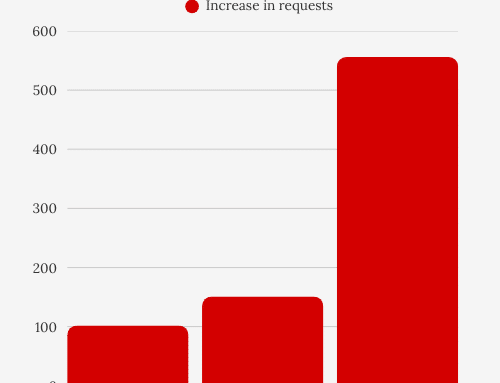Ex-Facebook content moderator, whistleblower speaks at UNESCO conference in Paris
Former Facebook content moderator Daniel Motaung and Time magazine investigative reporter Billy Perrigo held a fireside chat on Wednesday afternoon at UNESCO’s global “Internet for Trust” Conference in Paris.
The Signals Network (TSN) supports Motaung through its Whistleblower Protection Program.
The “Internet for Trust” Conference aims to tackle how social media platforms can make sure they publish factual information and suppress hate speech and conspiracy theories — all without compromising the right to free speech.
During the fireside chat, Motaung offered his thoughts on ways to effectively regulate social media and help content moderators who develop PTSD when regulating graphic content. He called for three main things to change social media regulation.
Firstly, he said, the content moderation industry needs to be professionalized so that workers can be properly trained to moderate content and manage the risk of PTSD. A content moderator dealing with graphic content should be specialized in dealing with such content, he said.
Secondly, content moderators should unionize to be protected from unfair treatment, he said.
Thirdly, he called for the creation of a certification program for content moderators.
“You can’t pick people on the street just like that and get them to moderate, to make important decisions regarding the right to freedom of speech,” Daniel said. “You will end up with wars. You will end up with people dying.”
Motaung is a former content moderator and whistleblower who raised the alarm on the abusive working conditions at Facebook’s Kenyan outsourcing content moderation company, Sama.
He developed PTSD, anxiety and severe depression from the $2-per-hour job, which required watching hours of graphic content each day from across Sub-Saharan Africa including videos of beheadings and abuse. When he tried to mobilize over 100 of his colleagues to fight for better working conditions in 2019, he was fired.

Time magazine’s Billy Perrigo investigated those working conditions and wrote the February 2022 cover story, “Inside Facebook’s African Sweatshop.” TSN provided support to Motaung and another whistleblower quoted in the story. Motaung was later named in TIME100Next, a list that recognizes “emerging leaders from around the world who are shaping the future and defining the next generation of leadership.”
It’s been three years since Motaung left Sama and returned to his home in South Africa, but he is still trying to recover from the trauma.
Perrigo noted that Silicon Valley workers who deal with difficult content have safeguards in place, including a daily time limit of content consumption and trained therapists. But at the same time, there is a global “underclass” of outsourced content moderation in countries like Kenya, India and the Philippines. Those outsourced workers are penalized if they don’t view at least one piece of content every 50 seconds, Perrigo said.
“They’re simply trying to maximize profits,” Motaung responded. “Users are definitely going to suffer by the end of the day.”
Motaung has filed a lawsuit against Facebook and Sama accusing them of human trafficking and union-busting. A Kenyan court ruled earlier this month that the lawsuit can proceed. Facebook has appealed, arguing that it should not be sued in Kenya because it has no official presence there. The U.K. nonprofit Foxglove, a TSN partner, represents Motaung in the case.
On Feb. 17, Motaung joined three other conference speakers in a Twitter Spaces chat hosted by UNESCO about protecting human rights when dealing with online harms on social media. A recording of that chat, which was moderated by UNESCO’s Head of Press Clare O’Hagan, can be found here.
During the Twitter Spaces chat, Motaung explained the daily tasks of a content moderator — a human being doing the invisible task of cleaning social media feeds of harmful content — as well as how he worked up the courage to blow the whistle against Facebook. He also gave his thoughts on the shifting public dialogue about the harms of social media platforms in light of his own lawsuit.
Motaung also appeared in a video published by UNESCO in the lead up to the conference. In it he talks about the poor working conditions he experienced, including nine-hour days viewing mentally and physically harmful material.
For journalist inquiries, contact sarah@thesignalsnetwork.org.


